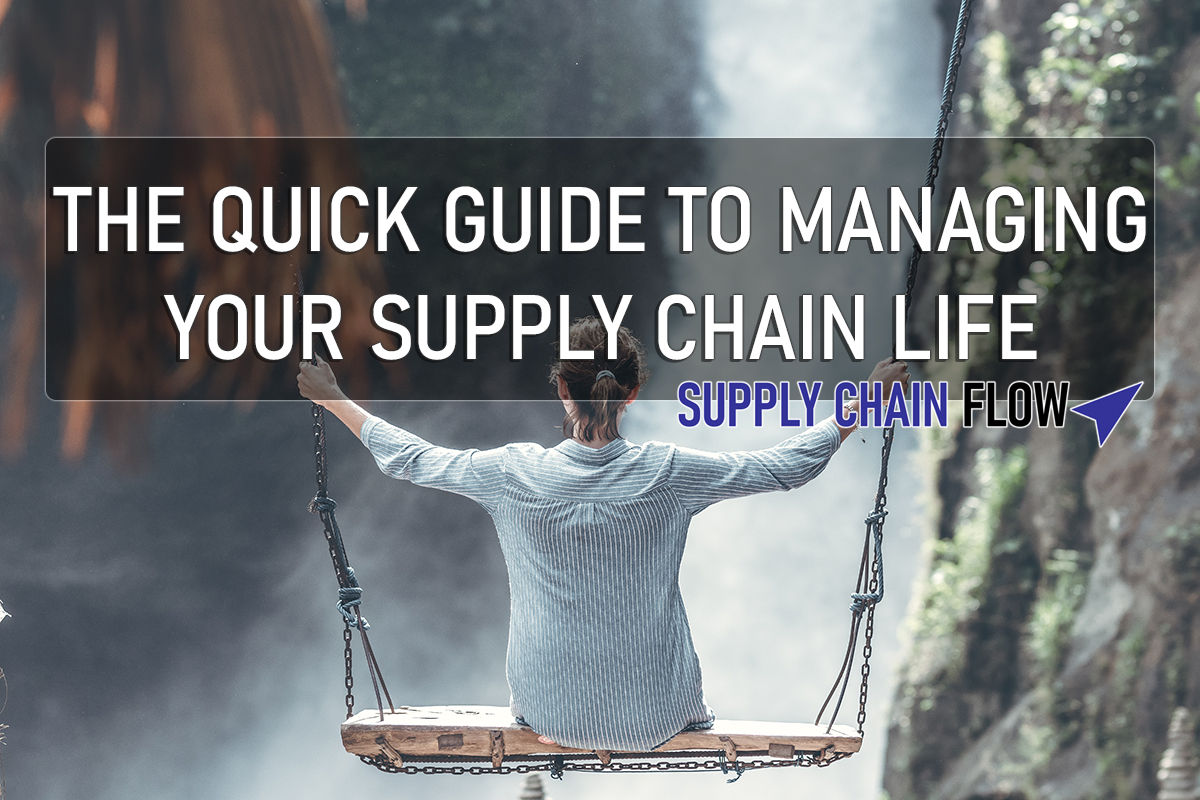The Quick Guide to Managing Your Supply Chain Life

Managing work-life balance can be difficult for anyone, but especially in Supply Chain, where freight never sleeps. Here are my top tips to keep your life in balance when dealing with the stress of Supply Chain.
Sleep
Sleep is the number one most important aspect of managing your work-life balance, or rather your life balance in general. Aim for at least 8 hours of actual sleep per night.
- Turn off blue light 2 hours before bed
- Stop eating 2 hours before bed
- Turn off TV, phone, or other devices at least 1 hour before bed
- Get 10 minutes of morning sunlight when you wake up
Exercise
You do not need to start a strict 2 hour exercise routine. Start small - go for a 15 or 20 minute walk in the morning and again in the evening. Slowly increase from there. Are you tired? Or can you go for more? Check with yourself and monitor your progress. Constancy here is key! Many folks cannot start with the end goal on day one - you may feel burnt out quickly. A little bit per day is much better than going overboard on day one and nothing the rest of the week.
Ultimately, you should aim for about 40 minutes of heart-rate increased exercise per day (Heart rate of 115 or higher), total exercise for at least an hour a day. This doesn't mean you need a gym membership - exercise should be some kind of activity you enjoy. Hate running? Try an elliptical instead. Hate cycling? Try swimming! Integrate exercise with your passions. Walking counts too. Nowadays there's even video games for exercise that can get your heart rate pumping.
The more you like an activity, the more likely you are to maintain the habit.
Eat better
Overhauling your diet overnight can have... gasterous effects. Try simply replacing any unhealthy habits slowly. Replace one soda per day with a big glass of unsweetened ice tea or water. Small steps are the key to consistency, similar to exercise.
Always get that Starbucks latte first thing in the morning? Try non-fat milk... or better yet, make one yourself. Making things yourself tends to mean MUCH less sugar as you control what you're eating, and you can SEE it too. Those fistfuls of sugar seem a bit less appealing when you scoop them yourself. Replacing sugary beverages with water is a huge simple step in reducing excess calories and sugar crashes.
I like the 80/20 rule - Ultimately, 80% of the food you eat should be fresh fruit, veg, beans, or whole grain. The other 20 percent can be desserts, things like dark chocolate, grass fed dairy, or breads. Desserts and candies should be a once-in-a-while thing! Soda, candy, ice cream - these should be regarded as they are, treats. Don't get too wild with constricting, as that typically burns people out quickly. Have a slice
- Replace junk slowly
- Drink more water
- Make it yourself
- Aim for 80/20 - Fresh fruit, veg should be 80% of your diet
Go Outside
Start and end the day outside. Just 10 minutes of sunlight in the morning and 10 minutes of sunset light in the evening can vastly improve your circadian rhythm and get you set up for a more focused day. Going for a walk in the woods, even for a short time, can trigger a relaxing affect that sitting inside all day just can't compare to.
Read
Try out reading actual books - Reading print material is much easier on the brain in terms of focus. Read a wide variety too - non-fiction, fiction, fantastic fantasies, autobiographies, anything to get your brain relaxed, focused, and away from the hustle and bustle of your daily job.
Meditate
Setting aside just 20 minutes per day for nothing at all can do wonders. Follow meditation guides for free on Youtube. Use it as a tool to charge up for the day before getting to work, or as a mid-day break, or an evening wind-down.
Rest and Reward
For all your little victories, take time to reward yourself. Walked every day this week? Relax with a calming bath. Pushed yourself today? Tomorrow set aside an hour of guilt-free videogames. Just don't let the reward outweigh the victory itself!
Understanding
There are a lot of different parties involved in Supply Chain, likely from all walks of life and all over the world. Take time to understand them - listen if they have complaints, and listen while they're speaking. Even if you think they might be wrong, perhaps they were trained a different way or have a different experience than you. Once they are finished speaking, ask questions and work with them to help solve problems together. You will go a long way in Supply Chain if you just take the time to understand the hurdles a colleague might be facing.



